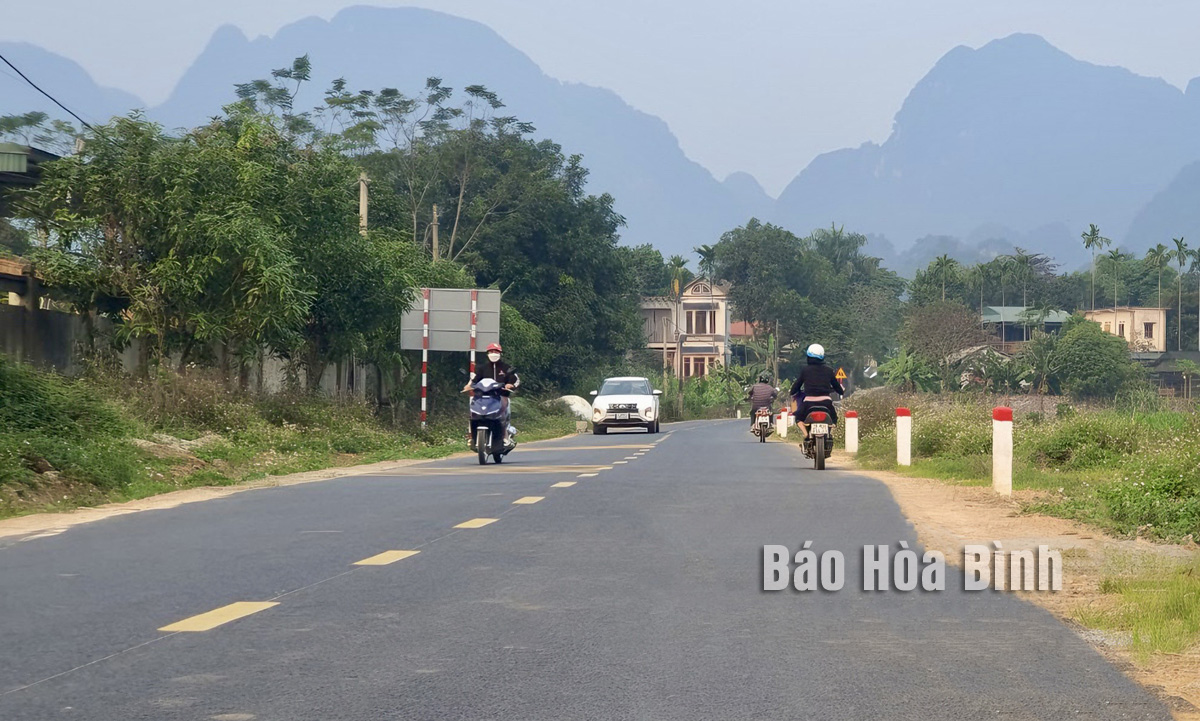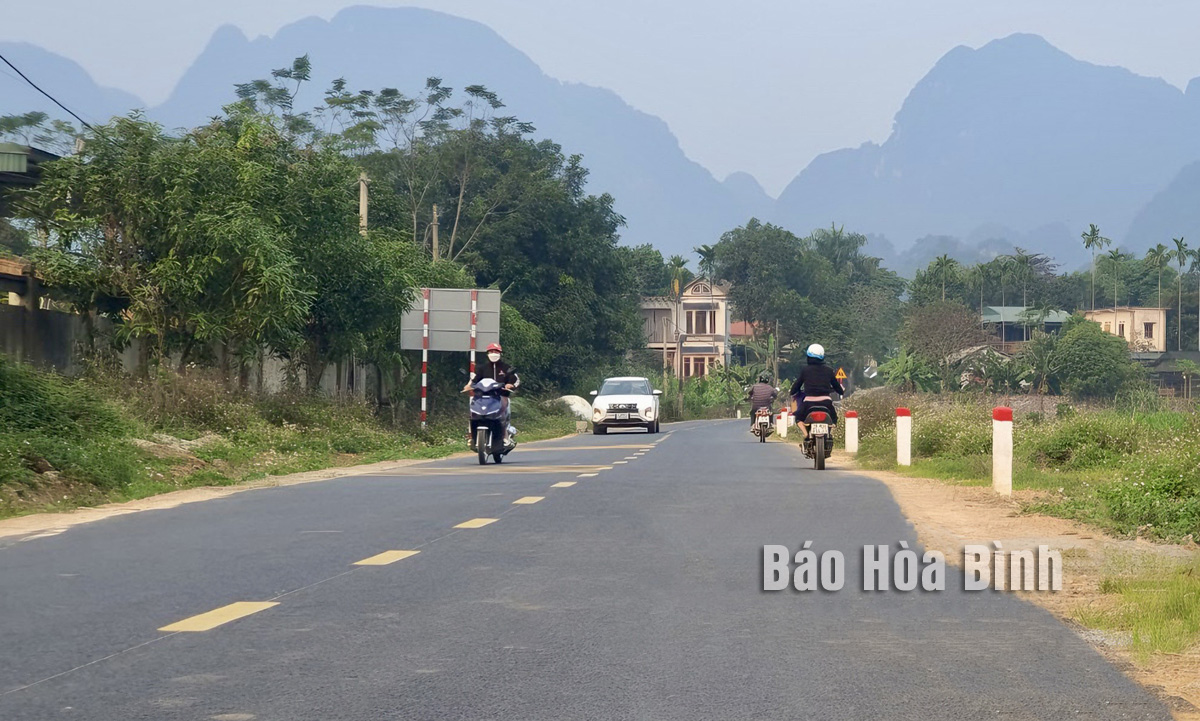
Kim Boi district is drafting 23 planning projects which are expected to help boost the local socio-economic development, attract investors, and mobilise resources for development, said Vice chairman of the district People’s Committee Tran Tuan Son.
They include the one on Bo urban area development until 2045, 20 zoning, and 12 on rural residential areas in communes.
Road in Mo Da hamlet, Bo town in Kim Boi district, upgraded and expanded to serve local tourism development.
According to the spatial development orientation of Hoa Binh province by 2020 with a vision to 2030, Kim Boi is located in Sub-Region 2 in the east and south of the province. It’s the province’s sub-region for industry - tourism - trade - agriculture - forestry development. The district connects to important national economic corridors such as Ho Chi Minh Highway, National Highway 21, and National Highway 12B and adjacent to Hanoi and the provinces of Ha Nam, Thanh Hoa, and Ninh Binh. In addition, the district is located on the main economic corridor Luong Son - Kim Boi - Lac Thuy which borders Hanoi.
Planning is identified as one of the strategic breakthroughs to successfully implement the targets set by the Resolution of the 17th provincial Party Congress. It is expected to help attract investment and boost local socioeconomic development. Therefore, the Kim Boi district People's Committee continues to allocate resources to soon complete the appraisal dossier. However, according to the committee, to increase their efficiency, general planning and zoning need to be integrated with other specialised plans. This requires further coordination between localities, departments, and agencies to promptly remove difficulties and obstacles.
Planning is an important legal tool to manage and mobilise resources and ensure long-term development. It will be a basis to build medium-term public investment plans, construction plans, urban–rural development plans, and specialised technical plans in the district.
Son affirmed that the district will prioritise resources to complete the planning work which is considered one of its key tasks now.
The Standing Board of the Hoa Binh provincial Party Committee has agreed in principle on a proposal by the Standing Board of the Party Committee of Hoa Binh city to gather feedback on the city’s 1:2000 zoning plan, which forms part of its broader urban development strategy.
Hoa Binh province has made notable progress in public administration reform and digital government development, with the satisfaction index among citizens and businesses reaching over 84%, according to recent government evaluations.
Thanks to great efforts by local authorities in recent times, the governance and public administration performance of Mai Chau district has been significantly improved.
In the afternoon of June 6, the Party Committee, the People's Council, the People's Committee and the Fatherland Front of Lac Son district solemnly held a meeting to celebrate the 139th anniversary of the district's founding (1886–2025) and the 79th anniversary of the establishment of the district's Party Committee (1946–2025). There was the attendance of Mr. Bui Van Thang, the Vice Chairman of the Provincial People's Council; Mr. Quach Tat Liem, the Vice Chairman of the Provincial People's Committee; Ms. Dang Bich Ngoc, the Deputy Head of the National Assembly Delegation of the province; as well as the former leaders of the province and district through various periods, who are the natives of the district.
Implementing the Politburo’s Resolution No. 57-NQ/TW on breakthroughs in science – technology, innovation, and digital transformation is a golden opportunity for the northern mountainous province of Hoa Binh to renew growth model, improve competitive edge and shorten digital gap.
Resolution 57-NQ/TW, issued by the Politburo on December 22, 2024, identifies sci-tech, innovation, and digital transformation as strategic breakthroughs to build a developed and prosperous nation. In Hoa Binh province, this spirit is not just a slogan, it’s being put into action through concrete initiatives that form a "new development triangle”: digital citizenship, digital economy, and digital administration.



